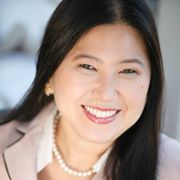Board-Certified Plastic Surgeon Dr. Constance Chen Provides Tips on Why and How Breast Implants are Removed or Downsized
NEW YORK (PRWEB) December 04, 2017
Every year, hundreds of thousands of women in the United States receive breast implants, either to reconstruct a breast lost to cancer or for cosmetic purposes. But three out of four reconstruction patients will experience at least one complication and many will be unhappy with the way their implants look and feel. Women who have had cosmetic implants also suffer complications and are often dissatisfied; almost 30,000 of them had implants removed in 2016.
“There are many medical and cosmetic reasons that women have implants removed,” says board-certified plastic surgeon Dr. Constance M. Chen. “Some implants simply fail and must be removed but many women have come to learn that they don’t have to live with implants that are unsatisfactory for any reason. For example, we are seeing women with cosmetic implants who find years or even decades later that the big breasts they once wanted no longer suit them.”
Bigger isn’t always better
Cultural norms change. The appeal of the full-breasted figure of twenty or thirty years ago has given way to a more natural, healthy, athletic look and women have embraced the active lifestyle that produces that body. Many now find that large augmented breasts, especially if they are disproportionately large, are heavy and cumbersome to manage. They may cause the same neck, shoulder and back discomfort that drives women with naturally large breasts to have them reduced. Their breasts may be a hindrance to activities such as running, aerobics, and yoga. One woman who had her implants removed complained that her breasts interfered with her golf swing. Some find it difficult to find clothes that fit well and look flattering.
“Many women who have implants removed have them replaced with smaller implants,” says Dr. Chen, “and some revert to their own natural breasts. The aesthetic result depends on several factors, including how long the implants were in place, and sometimes a breast lift (or mastoplexy) or fat-grafting procedure may be needed to achieve a pleasing profile.”
Breast implants aren’t made to last
Many women experience health and cosmetic problems with implants in the first few years and the risks increase over time. Implants aren’t expected to last a lifetime. Most have a ten-year warranty although many have to be removed before that. “Implants are foreign bodies,” says Dr. Chen. “They provoke a natural response in which the body creates a barrier of scar tissue around the implant to wall it off and protect any foreign substance from penetrating other parts of the body.” This barrier, or capsule, may be soft, flexible, and barely noticeable or it may become hard and painful, like a shell that develops around the implant. This uncomfortable condition, known as capsular contracture, is among the most common reasons for implant removal. Other common problems include infection, caused by bacteria becoming embedded in the implant; rupture, in which the saline solution or silicone gel that fill the implant leak into the surrounding tissues; and extrusion, in which the skin erodes and the implant pushes through the skin.
In addition to experiencing medical complications, many women find that that their implants feel hard and look unnatural, or that they’ve lost all feeling in the breast, or that their breasts are distorted and asymmetrical. “Most of these problems can only be treated by removing the implant and the entire surrounding capsule and repairing the muscle and skin around it,” says Dr. Chen. “No one has to live with discomfort or aesthetically unsatisfactory implants. Women have many options for breast reconstruction and for improving their appearance. Removing implants is only the first step.”
Constance M. Chen, MD, is a board-certified plastic surgeon with special expertise in the use of innovative natural techniques to optimize medical and cosmetic outcomes for women undergoing breast reconstruction. She is Clinical Assistant Professor of Surgery (Plastic Surgery) at Weill Cornell Medical College and Clinical Assistant Professor of Surgery (Plastic Surgery) at Tulane University School of Medicine. http://www.constancechenmd.com

